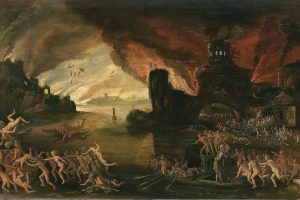As a Catholic school kid living in the Bible belt South, I grew up as a religious minority. When I was invited to attend an interfaith conference in Jordan, therefore, I didn't feel intimidated until I realized I had landed in a Muslim country where 96 percent of the population was celebrating the month of Ramadan.
I knew nothing about Ramadan, a monthlong practice during which Muslims fast from sunup to sundown as a sign of submission to God. The fast includes all food and drink, even water, and its purpose is to cleanse Muslims of impurities, both physical and spiritual.
I knew about fasting, of course, from not eating candy during Lent, and inflated with a new form of Catholic pride, I decided not to be outdone by the Muslim women whose company I was sharing.
"It's OK, you can eat in front of us, we don't mind," I was told by the group of veiled women I met with.
"Oh, it's no problem, we do fasting, too," I bragged. Since no food or water was allowed during the day, I would return to my hotel, eating out of my suitcase several boxes of crackers and peanut butter I had brought with me. There was no food in the hotel lobby or restaurant.
I did notice the women in my group looking a little concerned. One woman asked me every morning what I was eating. Thinking she just enjoyed speaking about food, I'd tell her about the food dreams I was having.
They occurred every night around two in the morning. The most delicious smell of eggs would float up to my hotel room while I would lie in bed and reach for my tasteless crackers through the dark.
"Don't you get up and go down to eat?" she asked.
"Whenever I go down to the restaurant it's closed," I said.
"But you are supposed to be eating at four in the morning," my friends explained, looking even more concerned. "That is when we eat our first meal of the day. Muslims only fast for 12 hours a day during Ramadan. We get up and eat early in the morning and then at sundown. Have you not been eating at all?"
I had to sheepishly confess that this Catholic had been fasting for 18 hours. What followed was a humiliating acknowledgement of my personal ignorance about the eating patterns and foods of Ramadan and the obnoxious pride that I was operating under. But my faux pas also began a conversation about my own religious practice and how it was both different and similar to theirs.
Interfaith dialogue occurs in many ways–giving a smile to a woman wearing a hijab, or headscarf, in the grocery store, visiting the synagogue during an open house, or contacting the local heads of both congregations, asking if they wish to begin dialogue are all ways to reach out in faith.
In 2007, after Pope Benedict's Regensburg speech, which offended many in the Muslim community by quoting a negative portrayal of the Prophet Muhammad, I felt compelled to call on the heads of both Muslim and Jewish communities in the city where I live. I wished to learn about my neighbors and expressed this on behalf of our Catholic community. Now three years later, more than 400 people have sat down to dialogue in my city.
Interfaith dialogue occurs on several levels and wears many faces.
One face is interactive, which was the one I wore with my Muslim fasting friends in which we speak together of the actual practice of our traditions. If you are very lucky to share such an intimacy, you can also compare failures.
Another face that interfaith dialogue demands is a degree of humility. We interact with one another as people who share the same cultural struggles while holding fast to our beliefs. There should always be an inherent respect for religion itself and for the beliefs of each religion.
Then there is the face of actual belief where you exchange the tenets of what you as a Catholic believe. A good Muslim trying hard to live up to the high standards of his or her religious beliefs mirrors yours as a good Catholic struggling to live up to your own.
If you believe that interfaith dialogue means compromising your own faith, think again. In order to do this work, you must know your religion, be a devout believer in it, and be willing to expose your weak underbelly to probing questions. It is a challenge to present Catholicism from an informed and knowledgeable position.
During one dialogue, one of our Muslim members asked his Catholic friends, "Is your Trinity three gods?"
The reply came from a quiet woman who answered for us all. "No, it's three natures of God. We, like you, believe in only one God. We say so in our Creed, the one we recite at every Mass throughout the world." There was one huge sigh of relief in the room, and we moved on to other questions, comments, and a few good jokes.
The last face of interfaith dialogue is one that is special between Catholics and Muslim. It is the face of hope that we bring to dialogue, hope that encourages thinking that leads toward greater openness. Catholics are people of hope. This means we are charged to live with the great questions of mystery and to stay on the lookout for opportunities to grow in our faith journey.














Add comment